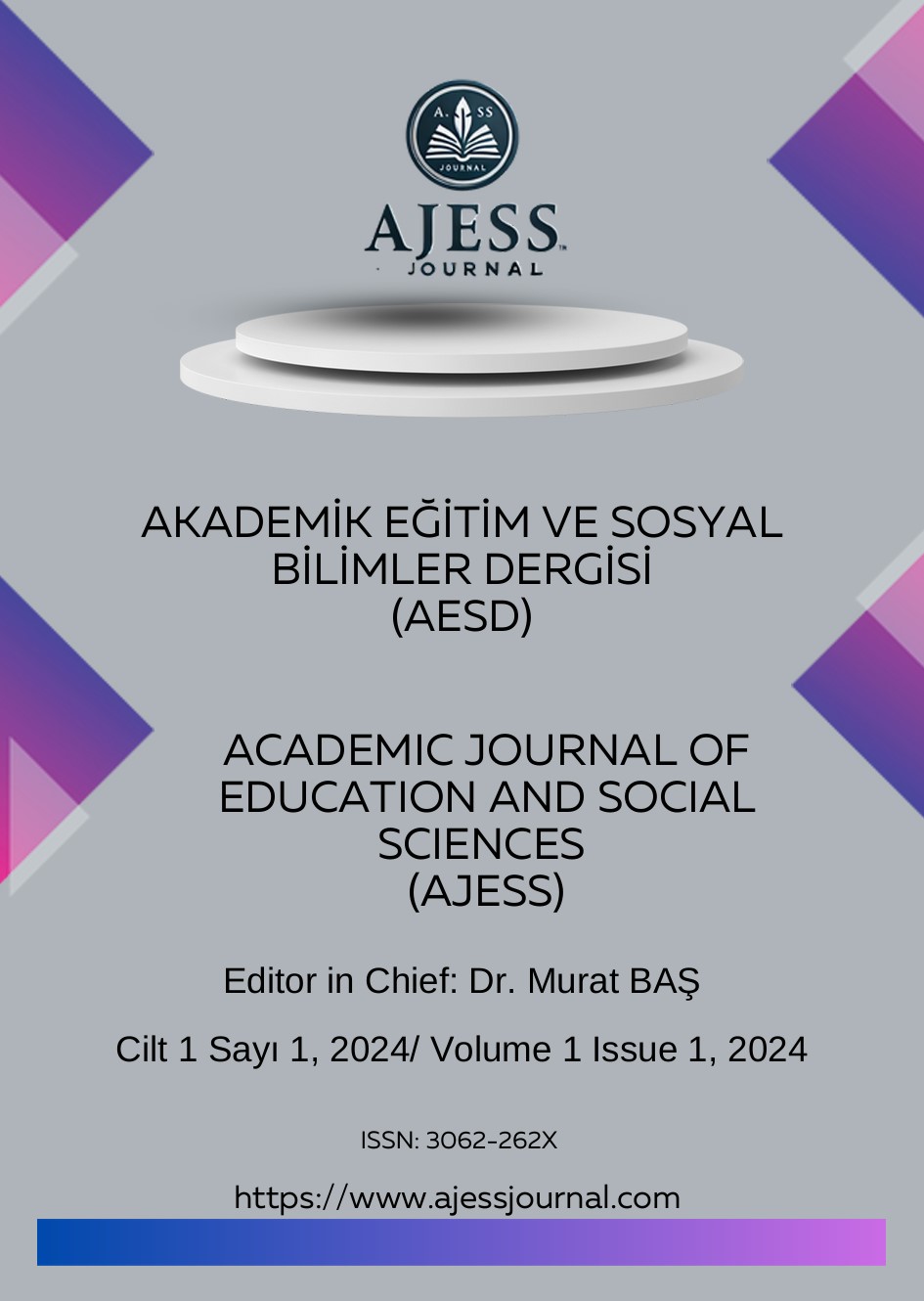Teachers' Perspectives on Primary School Students' School Adjustment Issues
Main Article Content
Abstract
This research aims to determine the main problems that primary school students encounter during the adaptation process to school in line with teachers’ views. The research question was determined as “What are the main problems that primary school students encounter during the adaptation process to school and how do teachers evaluate these problems?” Semi-structured interviews were conducted with 15 classroom teachers using the phenomenological research model. The data were examined using the content analysis method and the findings were divided into four main categories: emotional and social adaptation problems, academic adaptation problems, problems related to teacher and family interaction, and behavioral adaptation problems. According to the findings, it was determined that the students experienced adaptation difficulties such as school anxiety, difficulties in separating from the family, and problems in focusing on lessons. It was found that teachers emphasized obstacles such as lack of family cooperation and difficulties in adapting to classroom rules. It is suggested that teachers, family support, and in-school interaction should be increased in order to solve these problems. The results of the research serve as a guide for teachers and education policies and may contribute to the improvement of teaching methods and school support systems.
Article Details
Section
All published content is protected under the CC BY-NC-ND 4.0 license.
How to Cite
References
Birch, S. H., & Ladd, G. W. (1997). The teacher-child relationship and children's early school adjustment. Journal of School Psychology, 35(1), 61-79. https://doi.org/10.1016/S0022-4405(96)00029-5
Bronfenbrenner, U. (1979). The ecology of human development: Experiments by nature and design. Harvard University Press.
Buhs, E. S., Ladd, G. W., & Herald, S. L. (2006). Peer exclusion and victimization: Processes that mediate the relation between peer group rejection and children's classroom engagement and achievement? Journal of Educational Psychology, 98(1), 1-13. https://doi.org/10.1037/0022-0663.98.1.1
Creswell, J. W. (2013). Qualitative inquiry and research design: Choosing among five approaches (3rd ed.). SAGE Publications.
Giorgi, A. (2009). The descriptive phenomenological method in psychology: A modified Husserlian approach. Duquesne University Press.
Hamre, B. K., & Pianta, R. C. (2001). Early teacher-child relationships and the trajectory of children's school outcomes through eighth grade. Child Development, 72(2), 625-638. https://doi.org/10.1111/1467-8624.00301
Heidegger, M. (1996). Being and time (J. Stambaugh, Trans.). State University of New York Press. (Original work published 1927)
Krippendorff, K. (2018). Content analysis: An introduction to its methodology (4th ed.). SAGE Publications.
Ladd, G. W. (1999). Peer relationships and social competence during early and middle childhood. Annual Review of Psychology, 50(1), 333-359. https://doi.org/10.1146/annurev.psych.50.1.333
Ladd, G. W., & Price, J. M. (1987). Predicting children's social and school adjustment following the transition from preschool to kindergarten. Child Development, 58(5), 1168-1189. https://doi.org/10.2307/1130613
Lincoln, Y. S., & Guba, E. G. (1985). Naturalistic inquiry. SAGE Publications.
McClelland, M. M., Morrison, F. J., & Holmes, D. L. (2000). Children at risk for early academic problems: The role of learning-related social skills. Early Childhood Research Quarterly, 15(3), 307-329. https://doi.org/10.1016/S0885-2006(00)00069-7
Merriam, S. B. (2009). Qualitative research: A guide to design and implementation. Jossey-Bass.
Miles, M. B., & Huberman, A. M. (1994). Qualitative data analysis: An expanded sourcebook (2nd ed.). SAGE Publications.
Moustakas, C. (1994). Phenomenological research methods. SAGE Publications.
Patton, M. Q. (2002). Qualitative research and evaluation methods (3rd ed.). SAGE Publications.
Pianta, R. C., Cox, M. J., & Snow, K. L. (2007). School readiness and the transition to kindergarten in the era of accountability. Brookes Publishing.
Raver, C. C. (2002). Emotions matter: Making the case for the role of young children's emotional development for early school readiness. Social Policy Report, 16(3), 3-18.
Seidman, I. (2019). Interviewing as qualitative research: A guide for researchers in education and the social sciences (5th ed.). Teachers College Press.
Silver, R. B., Measelle, J. R., Armstrong, J. M., & Essex, M. J. (2005). Trajectories of classroom externalizing behavior: Contributions of child characteristics, family characteristics, and the teacher-child relationship during the school transition. Journal of School Psychology, 43(1), 39-60. https://doi.org/10.1016/j.jsp.2004.11.003
Smith, J. A., Flowers, P., & Larkin, M. (2009). Interpretative phenomenological analysis: Theory, method and research. SAGE Publications.
Strauss, A., & Corbin, J. (1998). Basics of qualitative research: Techniques and procedures for developing grounded theory (2nd ed.). SAGE Publications.
van Manen, M. (2016). Researching lived experience: Human science for an action sensitive pedagogy (2nd ed.). Routledge.
Wentzel, K. R. (1991). Social competence at school: Relation between social responsibility and academic achievement. Review of Educational Research, 61(1), 1-24. https://doi.org/10.3102/00346543061001001
Wentzel, K. R. (1998). Social relationships and motivation in middle school: The role of parents, teachers, and peers. Journal of Educational Psychology, 90(2), 202-209. https://doi.org/10.1037/0022-0663.90.2.202



